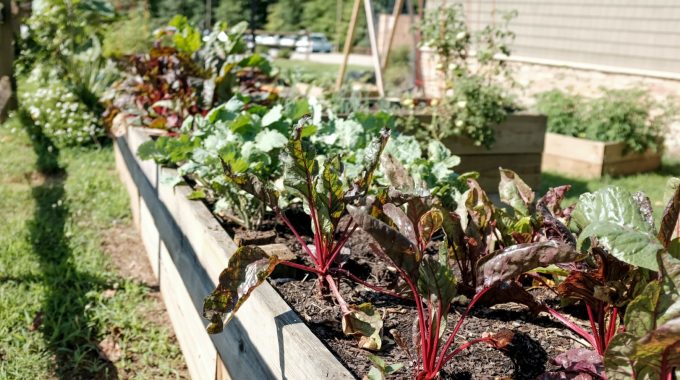
9 Tips for Backyard Organic Gardening
Organic gardening is gaining in popularity nowadays as many people are becoming more conscious about their health. Organic gardens produce vegetables that are chemical-free and safer to the health. These vegetables are good alternatives to commercially grown vegetables that are chemically exposed and costly.
Organic garden can thrive in anybody’s backyard. It just needs the right amount of sunlight, healthy soil, adequate water, and some helpful tips on how to properly do it and care for it.
1. Know what organic plants need.
Plants become healthy under good growing conditions. It means enough sunlight which is at least 6 hours a day and healthy soil with organic matter.
2. Choose disease-resistant varieties of plants.
There are plants like tomatoes and lettuce that are prone to pests and diseases. If you have to plant them, choose a variety that is more resistant to diseases. Normally, catalog listings or seed packages contain this information.
3. Fertilize soil with organic matter.
To make your plant grow faster, feed the soil with organic matter and not with chemical fertilizers. You can find it in your local garden store if you don’t have rotten animal manure from grass-eating animals. However, if your soil is already healthy, don’t overdo it by putting more fertilizers because they will make your plants grow faster as they normally should which in turn make them attractive to pests.
4. Practice rotation of crops.
Crop rotation is a common practice among farmers to keep an element of surprise to pests. To do this, try to plant different kinds of vegetables in one location every year.
5. Use mulch well.
A layer of mulch on top of the soil not only prevents the growth of weeds but it can also serve as a barrier against spores of fungal diseases that can destroy your plants. Make your mulch at least an inch thick. Use organic mulch if possible like straw or cocoa hulls that also add organic matter to the soil once they decompose.
6. Remove the weeds.
Weeds compete with your plants for nutrients and water. They also attract pests and insects that feed on plants. Remove weeds as soon as you see any growth.
7. Inspect plants for infected leaves.
Sometimes, you don’t have to throw an entire plant if the disease is not yet widespread. Just pick up infected leaves and throw them in the trash can away from your garden.
8. Water your plants.
During warm season, water the plants in the morning before the hot sun evaporates the moisture in the soil. You can also water in the late afternoon before sunset to give the foliage time to dry because if it is moist after sunset, it has a bigger chance of developing fungal disease. Watering plants everyday can help prevent plants from wilting.
9. Cover sensitive plants during a prolonged drought.
During a drought season, it is safer to cover sensitive plants with cloth to prevent them from wilting.
The key to a healthy organic garden is proper care and maintenance. By observing the tips mentioned here, you will surely enjoy your bounty of organic vegetables.
